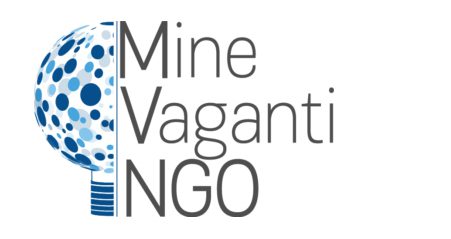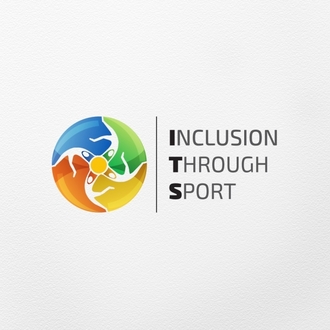Public speaking as a tool to upskill youth workers
Project Code: KA205-91FB7456
EU Grant: 142.515,00 EUR
Programme: Erasmus+
Key Action: Cooperation for innovation and the exchange of good practices
Action Type: Strategic Partnerships for youth
Coordinating Organization: Fundacja w Formie (POLAND)
Participating Countries:
1) Mine Vaganti NGO (ITALY)
2) Fundacja imienia Braci Solunskich – Cyryla i Metodego (POLAND)
3) SIHTASUTUS NOORED TEADUSES JA ETTEVOTLUSES (ESTONIA)
4) Socialinis efektas, asociacija (LITHUANIA)
Project dates: Start: 2021-02-01 End: 2023-01-31
“Public SPEAKing as a tool to UPskill youth workers ” (Speak Up) is a Strategic Partnership supporting innovation in the field of Youth aimed at exploring the potential of public speaking in response to the changing world in which the majority of relationships and business agreement are done online and not in presence. This, to help the youth in the process of personal and professional development through enhancement of advanced communication and entrepreneurial skills, with a specific focus on public speaking ability. As demonstrated by the COVID-19 at the beginning of 2020 where most world companies had to stop or adapt to remote working, in this new world of communication, the ability to speak effectively will be always more important to over the lack of physical contact and its communicativeness. This will be achieved by producing an innovative methodology regarding the transition of non-formal skills in the youth field of advanced communication and entrepreneurial expertise, the methodology will be established on the foundation of the Non–Formal Education and competence-based approach to the development and consolidation of freshly accomplished skills.
The project complements the focus on public speaking skill with additional attention to entrepreneurial and communicative impairment. SPEAK UP deploys an intervention on the development and promotion of an innovative methodology on skills-related transition and takes in consideration the youth’s learning cycle dimension through a systematic assessment that will be based on educational, integrational, and creative factors. As part of the development process, the non-hierarchical nature of the co-creation is adopted entailing a peer-to-peer process of co-operation between a group of creators in the achievement of an innovative methodology that effectively delivers public speaking and entrepreneurial skills to youngsters.
With a record number of NEETs following the financial and economic crisis, there have been concerns among policymakers that a whole generation of young people in the EU could remain out of the labour market for years to come. The data available from 2018 shows that NEET rates in the EU- 28 were 16.5 % for people aged 20–34. (Eurostat 2018). In the project partners’ countries, the percentages are Italy 28,9% with the highest in all Europe, Greece 26,8%, Bulgaria 20,6%. Romania 20,6% and Lithuania 12,7%. From a narrowly economic view, these statistics point out an elementary problem which is the rising difficulties for the European young people in finding a reliable career perspective. The constant trend fluctuation of the European Labour Market and the international competition with other emerging labour markets across the world (such as BRICS and the Asian market) demonstrates the need to develop the alternative skill supply to the youth of Europe, in order to foster employability and socio-educational and personal development. Consequently, enhancing the labour value inside the European context as well as participation in civic and social life. The strategy points to challenges which are universal to the different roots of marginalization, among which include; low access to education and employment in the labour market, income inequalities and excluded young people as compared with the mainstream population. Skills/qualification-related barriers hampering socio-economic exclusion of marginalized youths are compounded by visible and hidden forms of the social stigma surrounding marginalization, as discordant with societal bias in favour of “mainstream” identities, laying at the roots of exclusion, apathy, discouragement and refrain from engagement, be it educational, social, recreational or occupational- acting as drivers of self-feeding circles.
The strategy points to challenges which are universal to the different roots of marginalization, among which include; low access to education and employment in the labour market, income inequalities and excluded young people as compared with the mainstream population. Skills/qualification-related barriers hampering socio-economic exclusion of marginalized youths are compounded by visible and hidden forms of the social stigma surrounding marginalization, as discordant with societal bias in favour of “mainstream” identities, laying at the roots of exclusion, apathy, discouragement and refrain from engagement, be it educational, social, recreational or occupational- acting as drivers of self-feeding circles.
Direct Targets:
- Educators/trainers in the youth field providing or interested in developing their understanding of Communicational and Entrepreneurship;
- Entities with outreach to the targeted youth categories (NGOs, cultural businesses and associations, Arts centers/groups, Organizations providing services for excluded young people).
Indirect Targets:
- Disadvantaged young people aged 18-25 coming from marginalized urban and rural communities
Events and Project target groups:
Joint Staff Training Event:
N° of participants: 5
Profile: Every partner will send 5 Youth educators and trainers. The selected participants will be proficient in communication and entrepreneurial skills, but they may lack specific competences in Public Speaking, a methodology that they can use in their everyday work. Moreover, they can also learn how to use non-formal education methodologies in general, when facing with lowskilled and low-qualified Youngsters
Multiplier Event:
N° of participants: 40
Profile: Each Multiplier Conference will be participated by young people belonging to the categories decreed. Participants in the Local Programmes and youth workers/Trainers taking part in C1 will be involved in the project as part of the audience of youngsters.
Intellectual Output:
IO 1: SPEAK UP to SPEAK UP Toolkit
IO 2: Guide to SPEAK UP
IO 3: SPEAK UP Web Platform
Project objectives/is supportive of the identified priorities as follows:
a) explore the potential of public speaking in response to the changing world in which the majority of relationships and business agreement are done online and not in presence
b) help the youth in the process of personal and professional development through enhancement of advanced communication and entrepreneurial skills, with a specific focus on public speaking ability
c) produce an innovative methodology regarding the transition of non-formal skills in the youth field of advanced communication and entrepreneurial expertise.




